Showing 33–48 of 60 results
-
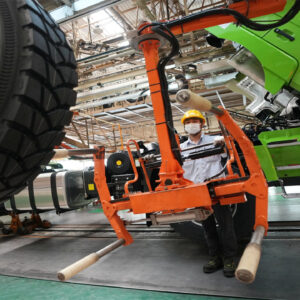
Intelligent production lines integrate advanced tech like automation, data analysis, and IoT for efficient, automated manufacturing. They feature real-time monitoring, predictive maintenance, flexible configuration, quality control, energy management, human-machine collaboration, supply chain integration, and remote operation. These lines are key to Industry 4.0, enhancing flexibility and efficiency in manufacturing.
-
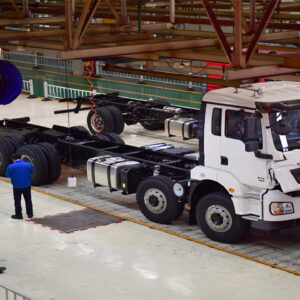
The heavy-duty truck assembly line is specialized for manufacturing large trucks, encompassing chassis assembly, power train installation, cab fitting, chassis component setup, electrical wiring, wheel and tire mounting, interior assembly, and final inspections. It features high automation, strict quality control, and efficient material management to meet diverse production needs, with intelligent systems like MES for real-time monitoring and optimization.
-
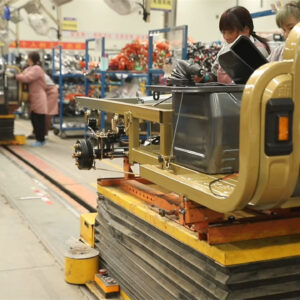
A tricycle assembly line is designed for efficient tricycle production, with stations for frame assembly, motor and battery installation, wheel fitting, control systems, and quality checks. It may incorporate automation to enhance efficiency and quality, with systems for real-time monitoring and data analysis.
-
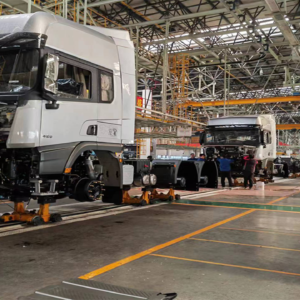
Balancing cost and efficiency involves lean manufacturing to reduce waste, investing in automation for long-term gains, enhancing quality to minimize rework, optimizing supply chains for cost savings, and managing energy use. Data analysis helps identify inefficiencies, while flexible workforce management adapts to production needs. Collaborating with customers ensures value-driven production, and a culture of continuous improvement drives ongoing efficiency and cost reductions.
-
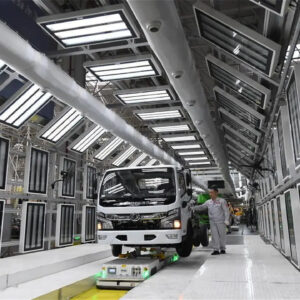
Light Truck Assembly Lines/Production Lines are Suitable to Assemble/Produce trucks. Automated Light Truck Assembly Lines have a significant impact on improving production efficiency, which is evident in the following aspects: 1. **Enhancing Production Efficiency**: Automated production lines, equipped with robots, AGVs (Automated Guided Vehicles), PLC control systems, and other devices, operate fully automated, greatly increasing…
-
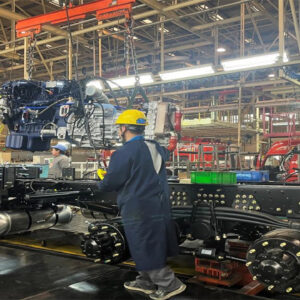
To enhance efficiency and quality in light truck assembly, optimize processes, adopt modular assembly for simplified processes, increase automation for flexibility, standardize operations for consistency, hence quality management, manage suppliers for consistent parts quality, and upgrade technology for better emission control and reliability. These strategies improve production lines to meet market demands for high-quality light trucks.
-
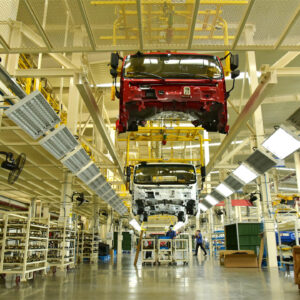
The light truck assembly line specializes in assembling light-duty trucks with key processes including chassis assembly, wiring and piping layout, front and rear axle assembly, engine installation, exhaust and urea system assembly, interior fitting, and electronic system setup. Automated processes like stamping, welding, painting, and final assembly enhance efficiency and ensure consistent quality in the production of light trucks.
-
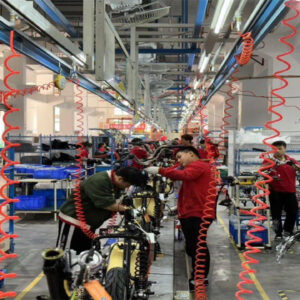
The motorcycle assembly line assembles various parts into complete motorcycles efficiently. It includes stations for frame, engine, electrical system, suspension, and body parts assembly. Quality control is integral, ensuring each motorcycle meets safety and performance standards before leaving the line.
-
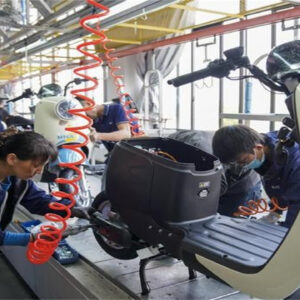
Motorcycle final assembly lines feature automated equipment for precision, modular designs for flexibility, and quality checks to ensure standards. They adapt to various models, comply with environmental regulations, and use information systems for process optimization. Safety is prioritized, and continuous improvements are made for better quality and efficiency, with customization options available.
-
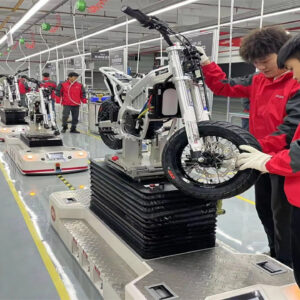
Motorcycle assembly lines have achieved a high level of automation, featuring automated material handling with RGV systems, intelligent quality control through vision recognition and sensors, and data analysis for optimization. They integrate MES for efficient production management and utilize AGV technology for flexible assembly, adapting to market demands and cost pressures.
-
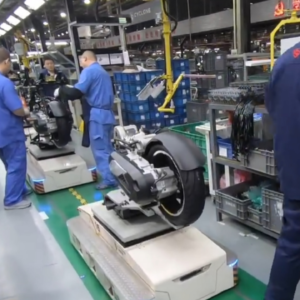
The motorcycle final assembly line includes key components like assembly stations, electric and pneumatic tools, rotating platforms, quality inspection equipment, and automation systems. These ensure efficient assembly and quality control. Daily output varies based on automation, worker skills, process design, equipment reliability, and other factors.
-
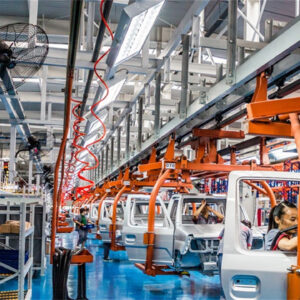
SKD and CKD models in pickup assembly lines help reduce costs and tariffs, promote local industry development, enhance production flexibility, and adapt to local standards. CKD, in particular, aids in technological advancements and industrial upgrades. These models allow for quick responses to market changes and contribute to economic growth and job creation.
-

The pickup truck CKD assembly line involves receiving and inspecting fully disassembled parts, sorting and storing them, assembling the chassis, installing the powertrain, attaching the body, configuring electronic systems, fitting interiors and seats, mounting wheels and tires, conducting performance tests, and performing quality inspections before final packaging and shipping. This approach offers production flexibility, quick market response, and reduced logistics and tariff costs.
-
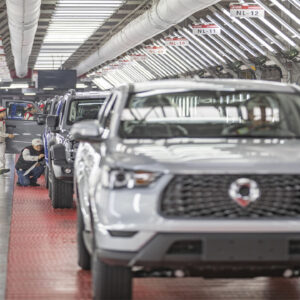
The pickup truck SKD assembly line involves receiving and inspecting semi-finished components, sorting and storing them, assembling the chassis and cab, installing the powertrain, configuring electronic systems, fitting interiors and exteriors, conducting performance tests, and packaging for shipment. This method enhances production efficiency, utilizes local labor, and can reduce import costs.
-
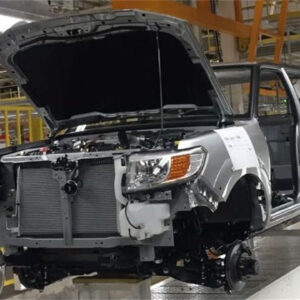
The pickup truck assembly line consists of raw material processing, body welding, painting, final assembly, inspection, and dispatch. It may use SKD or CKD models and includes steps like stamping, welding, painting, and detailed checks like interior, chassis, and exterior assembly, as well as performance tests.
-

Pickup truck assembly lines involve stamping, welding, painting, and final assembly. Interiors, chassis, and exteriors are assembled, followed by alignment, rain tests, and road tests. A final inspection ensures quality standards are met. This process guarantees each truck is ready for the road.















